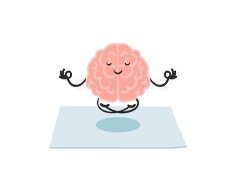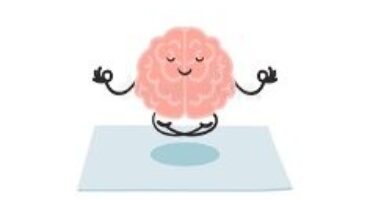Stress is the body’s response to the demands of a situation. More accurately, stress is the body’s response to one’s thoughts and perceptions about the demands of a situation.

Stress can be beneficial or harmful. A beneficial stress is the kind that we experience when excited. Beneficial stress can help improve performance and allow us to quickly and effectively react to a real threat.
But what if the threat is not real? What if it exists only in our minds as a result of faulty thinking patterns? Known as automatic fear thoughts, these may arise unconsciously in response to certain situations or stimuli, even when a true threat does not exist. This type of stress is harmful.
Most automatic fear thoughts, which result in harmful stress, actually boil down to one inner belief: “I am not enough.” This one, little but powerful, statement from the inner critic is often out of our awareness and so automatic that we do not even know it’s there. Over time, its influence grows. It is responsible for causing chronic stress responses even when there is no real danger. This chronic stress response then reeks havoc on our entire bodies, including our musculoskeletal system (aches, pains, tension, headaches, etc.), respiratory system (shortness of breath, panic attacks, asthma, etc.), endocrine system (immunity, illness, mood swings, weight gain/loss), nervous system (sleep, mood, headache, anxiety, depression), cardiovascular system (high blood pressure, heart health, etc.), and GI system (nausea, ulcers, stomach aches, eating problems, constipation, etc.).
In addition to affecting the physical body, prolonged stress—even when mild, and based on false beliefs – can also wreak havoc on our work performance, school performance, relationships, spiritual connection, and nearly every aspect of our lives.
Given that stress is caused by thoughts, impacts every system of the physical body, and seeps into social, emotional, and spiritual living, it makes sense that combating the effects requires a whole-person approach. To effectively deal with stress, we must give intention to our thoughts, our beliefs, our bodies, our relationships, and our spirituality.
Here is a challenge for you. Over the next week, when you notice that you are feeling stress, take a moment to check in with your whole self. What do you notice about your physical body? About your feelings and automatic negative self-talk? What are your needs for spiritual and social connection? How are you treating others in that moment of stress?
In my next post (“Stress is no laughing matter…Or is it?”), I’ll share some tips and strategies for managing stress.
-Dr. Katen
©2023 Individual Matters. All rights reserved. Feel free to republish so long as credit is given.
Individual Matters® is a registered trademark of Individual Matters, LLC.


 The Power of Suggestion
The Power of Suggestion